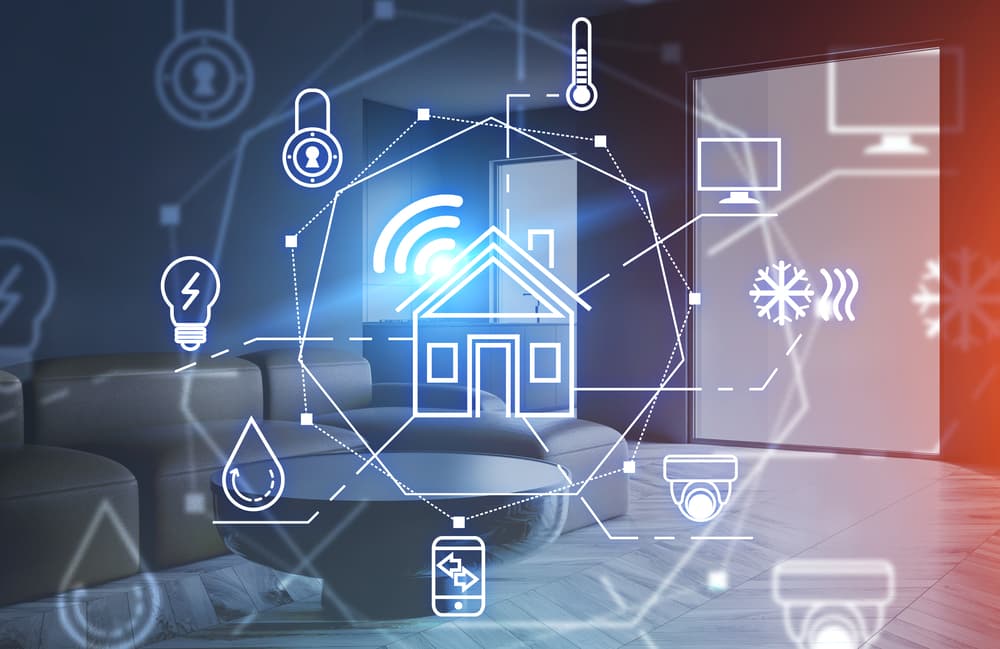
Smart HVAC Systems for Eco-Friendly Homes: The Future of Sustainable Living
Share
In an era where sustainability is paramount, Smart HVAC systems for eco-friendly homes are rapidly gaining traction among tech professionals and enthusiasts alike. These advanced systems not only promise to reduce energy consumption but also enhance the comfort and efficiency of modern homes. By integrating cutting-edge technology, Smart HVAC systems are paving the way for a greener future.
The quest for more sustainable living solutions has led to the development of innovative technologies that focus on minimizing environmental impact. Among these, Smart HVAC systems stand out as a game-changer. With the ability to optimize heating, ventilation, and air conditioning based on real-time data, these systems ensure that energy is used only when necessary, significantly reducing wastage.

The Rise of Smart HVAC Systems
The journey towards smarter, more efficient homes begins with understanding the role of HVAC systems. Traditional HVAC systems are notorious for their high energy consumption. However, with the advent of smart technology, these systems can now be controlled remotely, learn from user habits, and adjust settings automatically to ensure optimal performance.
Smart HVAC systems utilize the Internet of Things (IoT) to connect with other smart devices within the home. This connectivity allows for seamless integration and control, enabling homeowners to manage their heating and cooling needs with unprecedented precision. As a result, energy efficiency is maximized, leading to significant cost savings and reduced carbon footprints.
Features of Smart HVAC Systems
One of the standout features of Smart HVAC systems is their ability to learn and adapt. Through machine learning algorithms, these systems analyze user patterns and adjust settings accordingly. For example, they can detect when a home is unoccupied and lower energy usage, or pre-heat or cool a home before the occupants arrive, ensuring comfort upon entry.
Another key feature is remote access. With a simple smartphone app, homeowners can monitor and adjust their HVAC settings from anywhere in the world. This not only provides convenience but also ensures that energy is not wasted when adjustments need to be made on the fly.
Benefits of Implementing Smart HVAC Systems
Implementing Smart HVAC systems in eco-friendly homes offers a multitude of benefits. Firstly, there is the obvious advantage of energy savings. By optimizing energy usage, these systems significantly lower utility bills, making them a cost-effective investment in the long run.
Moreover, Smart HVAC systems contribute to a healthier indoor environment. By maintaining optimal air quality and temperature, these systems ensure that homes remain comfortable and conducive to good health. This is particularly important in today's world, where indoor air quality is a growing concern.
Additionally, the integration of Smart HVAC systems can increase the overall value of a home. As more homebuyers prioritize sustainability and smart technology, properties equipped with advanced HVAC systems become more attractive in the real estate market.
Integrating Smart HVAC Systems with Other Home Technologies
The true potential of Smart HVAC systems is realized when they are integrated with other smart home technologies. For instance, pairing these systems with smart leak detectors can prevent structural damage by detecting and addressing water leaks before they become major issues.
Furthermore, combining Smart HVAC systems with energy-efficient lighting solutions can further enhance a home's energy efficiency. By synchronizing lighting and HVAC settings, homeowners can create an environment that is not only comfortable but also environmentally friendly.
The Future of Smart HVAC Systems in Eco-Friendly Homes
The future of Smart HVAC systems is bright, with continuous advancements in technology promising even greater efficiency and functionality. As more homeowners and builders embrace sustainable living, the demand for these systems is expected to grow exponentially.
One exciting development on the horizon is the use of artificial intelligence to further enhance the capabilities of Smart HVAC systems. By leveraging AI, these systems can predict user preferences and environmental conditions, making real-time adjustments to ensure optimal performance.
Moreover, as eco-friendly home automation becomes more mainstream, Smart HVAC systems will play a crucial role in creating a seamless, integrated living experience. By working in harmony with other smart devices, these systems will help transform homes into efficient, sustainable sanctuaries.
Challenges and Considerations
Despite the numerous benefits, there are challenges to consider when implementing Smart HVAC systems. One of the main concerns is the initial cost of installation. While these systems can offer significant savings over time, the upfront investment can be a barrier for some homeowners.
Additionally, the complexity of Smart HVAC systems requires proper maintenance and occasional updates to ensure they function optimally. Homeowners must be willing to invest time and resources into keeping their systems up-to-date to reap the full benefits.
Conclusion
Smart HVAC systems for eco-friendly homes represent a significant step forward in the pursuit of sustainable living. By leveraging advanced technology, these systems offer unparalleled energy efficiency, cost savings, and enhanced comfort. As the demand for greener homes continues to rise, Smart HVAC systems will undoubtedly play a pivotal role in shaping the future of residential living.

FAQs
1. What are the benefits of Smart HVAC systems?
Smart HVAC systems offer numerous benefits, including energy savings, improved indoor air quality, and increased home value. They provide convenience through remote access and can adapt to user habits for optimal performance.
2. How do Smart HVAC systems contribute to sustainability?
By optimizing energy usage and reducing wastage, Smart HVAC systems help lower carbon footprints and promote sustainable living. They integrate with other smart home technologies to enhance overall energy efficiency.
3. Are Smart HVAC systems cost-effective?
While the initial installation cost may be high, Smart HVAC systems offer long-term savings through reduced utility bills. Their ability to optimize energy usage makes them a cost-effective investment over time.
